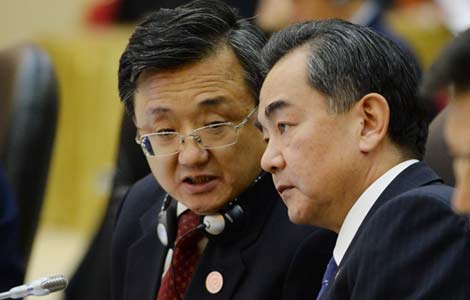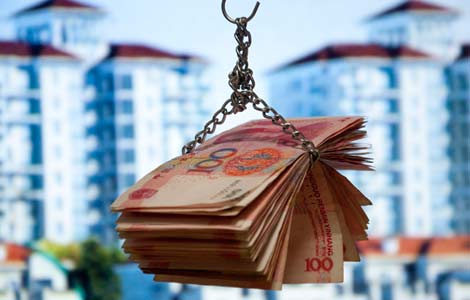Learn the lesson of the June affair
Updated: 2013-07-01 09:10
By Hong Liang (China Daily)
|
||||||||
The liquidity crunch that sent the overnight rate in the interbank market on a roller-coaster ride throughout most of June may have eased, but the lesson that must be learned from that fiasco will have far-reaching implications for financial reform in the months and years to come.
Reports of bankers scrambling for money, which filled the media in recent weeks, must have amused the public who never dreamed there would be a day when lenders would be begging for funds. Indeed, more than one bank as reported to have offered 0.8 percent interest for overnight deposits from the public as available funds in the interbank market ran low.
But amusing as it might seem, the liquidity crunch raised exaggerated concerns about the overall health of the banking sector. Such concerns were blown up by overly sensational press reports alluding to a looming credit crisis.
Nearly all those reports focused on the wide swings in the rates for overnight money in the interbank market. In doing so, they missed the point, because they largely ignored the 3-month rate, which is the common benchmark for market liquidity. In fact, this indicator remained quite stable throughout the turmoil, fluctuating within a narrow band of a few basis points.
Nevertheless, the much ballyhooed liquidity squeeze, though technical in nature and short-term in reality, did show up some fundamental problems - notably liquidity management and risk control - which must be addressed to pave the way for further financial reforms. Taking a hardened stance in ignoring bankers' pleas for an injection of liquidity into the banking system, the central bank is widely seen to have sent a message that self-discipline and accountability in the banking sector must be enhanced and moral hazard discouraged.
Many economists have put forward the view that moral hazard is a major hindrance to financial reform. The over-reliance on the government, which has bailed out the banks every time they got into trouble in the past, has fostered a habit of bankers taking unnecessary risks to maintain or maximize profits. Some banking experts go even further, noting that in some cases bankers weren't even aware of the potential risks because of poor in-house control mechanisms.
Bankers, of course, can fully understand the potential impact financial reform will have on their traditional business model. The decontrol of bank interest rates, for instance, will almost certainly eat into banks' profits by narrowing the spread between lending and deposit rates.
Worries about a possible profit squeeze have set many banks on a mad rush to restructure their asset bases, resulting in a proliferation of various types of off-balance sheet wealth management products that can generate fee-based income for banks. The majority of these products are funds raised from bank customers for investment in different kinds of financial instruments.
The most popular of these products are the so-called currency funds that are invested primarily in corporate and local government bonds. They seem particularly appealing to foreign investors who are attracted by a yield, which is higher than the fixed-income instruments of the United States and European countries and the potential gains from appreciation of the renminbi.
Prudent management requires banks to keep sufficient liquidity to meet the occasional spikes in redemption by fund investors. This is of particular importance to the bond funds because the bond market lacks the breadth and depth to absorb the sudden unwinding of large positions in a very short time. Setting the ratio of liquidity to the amount of funds issued is largely left to the judgment of an individual bank's management. That judgment has been brought into question by the liquidity squeeze in the past several weeks.
Bankers must now learn to manage their own affairs with the knowledge that they cannot rely on someone else to clean up their mess. That's the lesson of the June affair.
(China Daily USA07/01/2013 page11)

 Gay pride parade around the world
Gay pride parade around the world
 Four dead in Egypt clashes, scores wounded
Four dead in Egypt clashes, scores wounded
 New NSA spying allegations rile European allies
New NSA spying allegations rile European allies
 Foreign minister makes ASEAN debut as tensions flare
Foreign minister makes ASEAN debut as tensions flare
 Yao stresses transparency in charity
Yao stresses transparency in charity
 NYC's gay pride march for celebration
NYC's gay pride march for celebration
 Massive debt plagues local gov't
Massive debt plagues local gov't
 Looking abroad for better investment
Looking abroad for better investment
Most Viewed
Editor's Picks

|

|

|

|

|

|
Today's Top News
Chinese, US deals will grow this year
US updates duties on Chinese honey
Looking abroad for better investment
Mixed outlook for EV makers in China and US
Obama to announce new power initiative for Africa
China's June manufacturing PMI falls to 50.1
Longer term for visas to attract talent
Putin signs anti-gay measures into law
US Weekly

|

|






